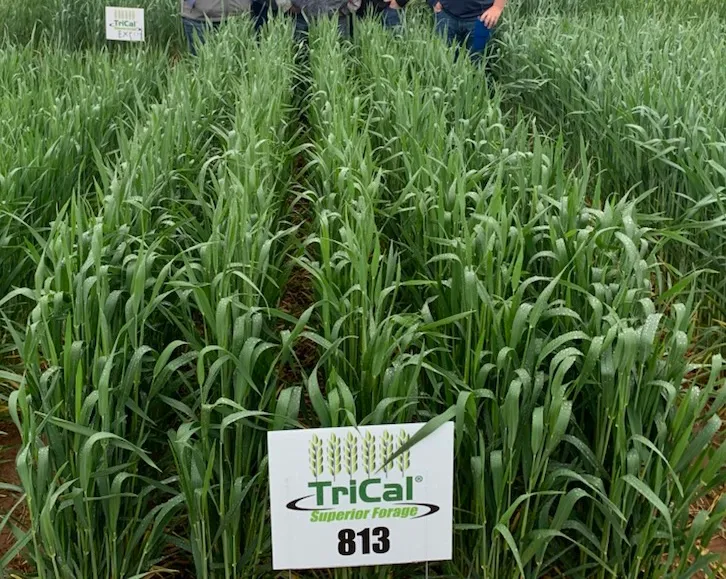
813
Tricale hexaploide var. 813
813 is one of the most utilized triticale's in the Midwest. 813 is awnletted and has a superior disease package that works well for both grazing and chopping. 813 is consistently at the top of the list in both tonnage and quality.
- Growing Region: Midwest
- Blooms:
- Life Form: Grass
- Application Type: Agricultural Conservation, Cover Crop
- Height: 4+ ft
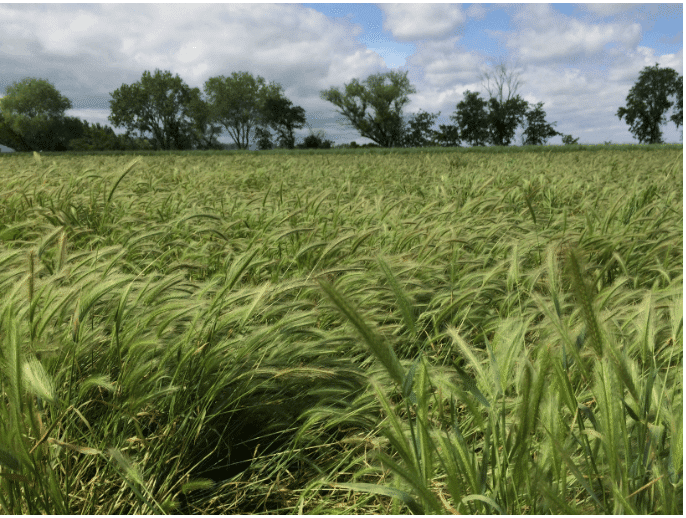
Alkali Barley
Hordeum depressum
This is an annual grass that grows between 1 to 2 feet tall. It is used for habitat restoration and as a cover crop. This grass prefers full sun and is typically found in grasslands, prairies, and disturbed areas.
- Growing Region: Pacific Northwest, Intermountain West, California
- Blooms:
- Life Form: Grass
- Application Type: Habitat Restoration, Land Reclamation
- Height: 0-1 ft
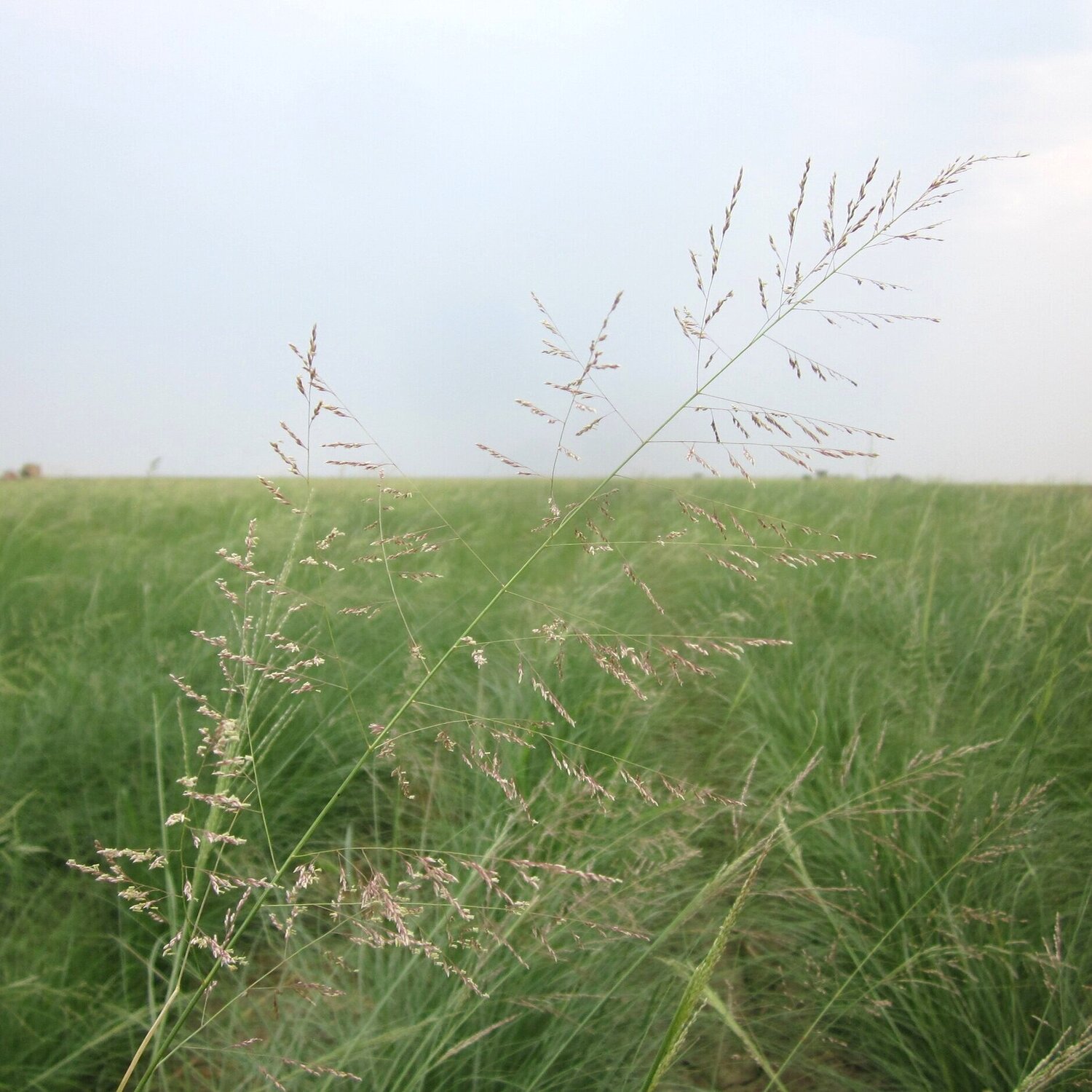
Alkali sacaton
Sporobolus airoides
Warm season, perennial bunchgrass with an extensive fibrous root system. Performs best on deep, moist, fine textured soils but will persist on coarser soils on dry sites. Tolerant of a wide range of soil pH. Capable of thriving on both saline and non-saline sites, sometimes becoming abundant. Versatile, tolerant of both drought and water inundation once established. Recommended for seeding disturbed saline soils and as a soil binder. Palatable to livestock and wildlife and provides valuable cover and food for birds, jackrabbits and other small mammals. Tolerant of moderate grazing.
- Growing Region: Intermountain West, Southwest
- Blooms:
- Life Form: Grass
- Application Type: Habitat Restoration, Land Reclamation
- Height: 1-2 ft
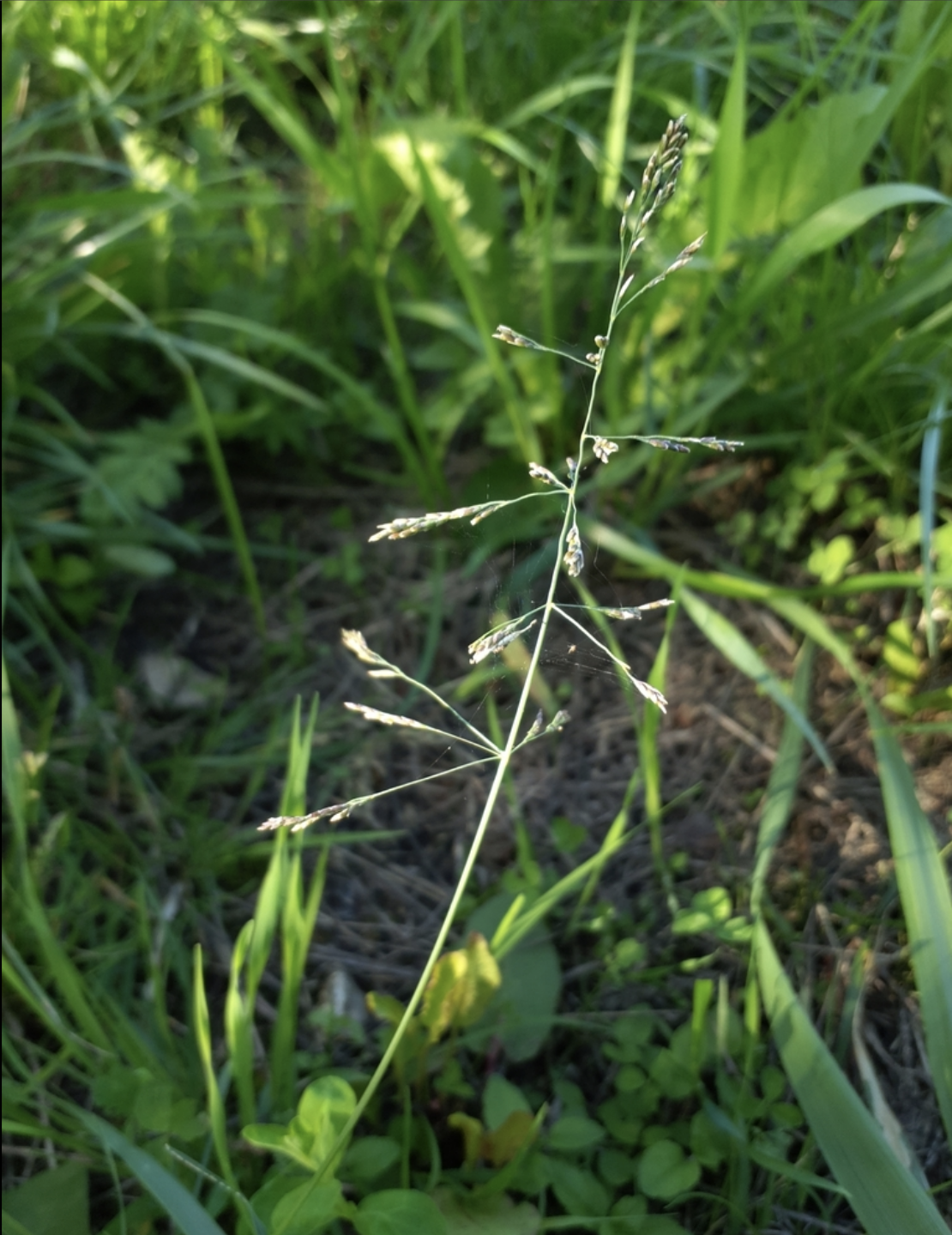
Alkaligrass
Puccinellia distans
Cool season, perennial sod-former with a vigorous and shallow fibrous root system. Adapted to moist or periodically moist, saline soils. Able to withstand intermittent flooding and shallow water tables. Moderately palatable. Excellent for establishing cover on saline soils. Also used as a turfgrass.
- Growing Region: Southwest
- Blooms:
- Life Form: Grass
- Application Type: Commercial Beautification, Forage & Pasture, Land Reclamation, Turf
- Height: 1-2 ft
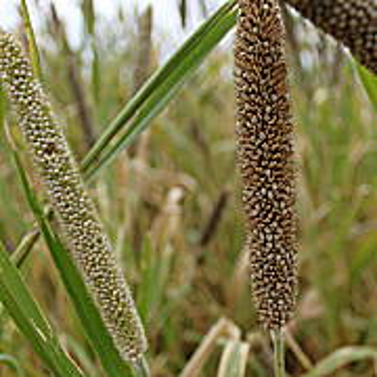
All Star BMR Pearl Millet
Pennisetum glaucum
All Star BMR Pearl Millet All Star BMR Pearl Millet is a hybrid brachytic dwarf BMR and a summer annual forage grass suited best for grazing or hay. Classified as a tall growing warm season grass, with stems that grow in thick clumps with abundant leaves 1 ½ to 2 inches wide. Plant late May through July For best results, plant when soil temperatures reach 60 degrees Planting rates drilled: Dryland 10-20 LBS/Acre, Irrigated 20-28 LBS/Acre Planting depths of 1/2 to 1 inch deep High palatability when grazed 4-6 weeks after planting Hay at approximately three feet before seed heads develop
- Growing Region: North America
- Blooms:
- Life Form: Grass
- Application Type: Agricultural Conservation, Cover Crop
- Height: 4+ ft
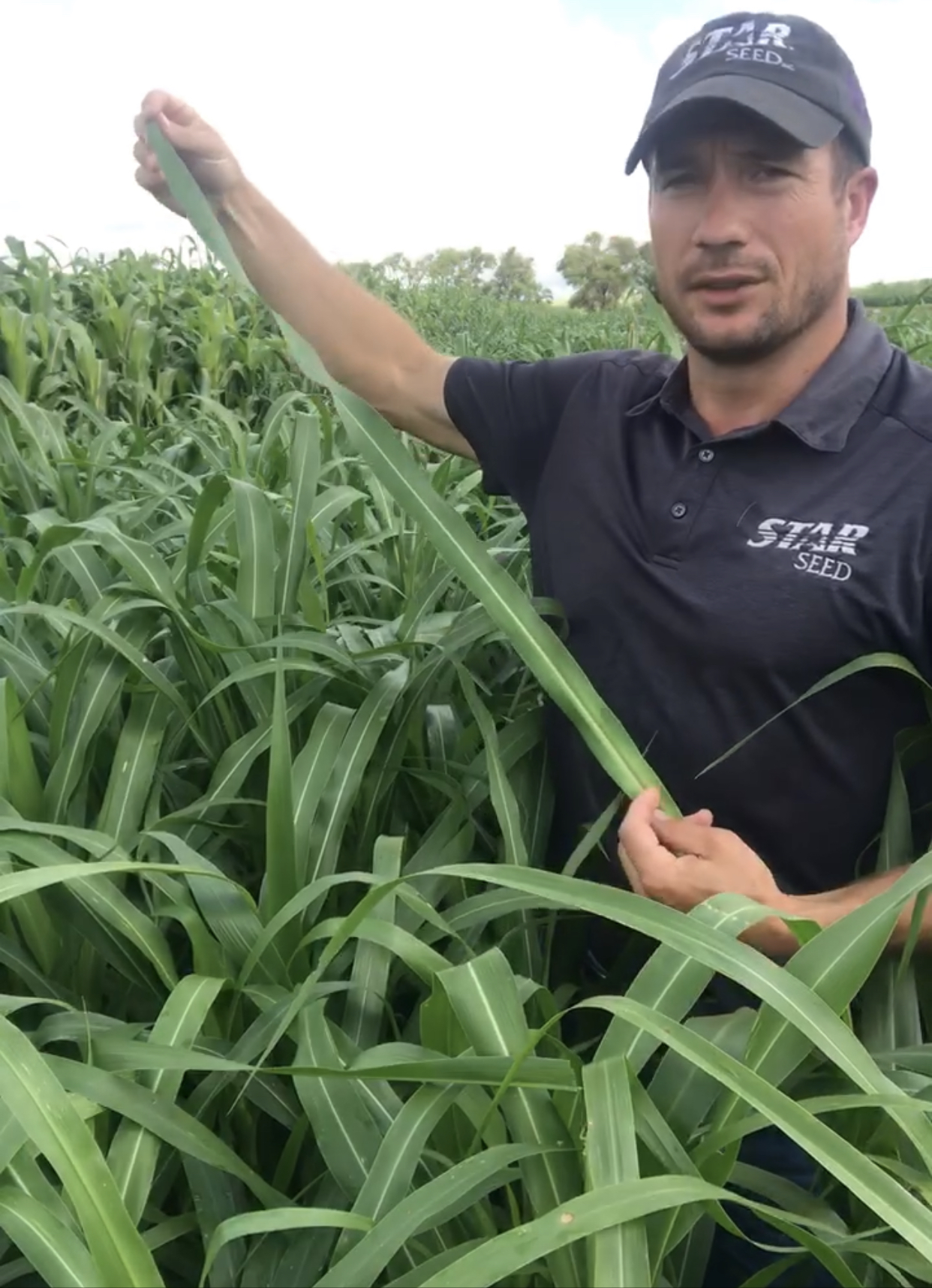
All Star Hybrid Pearl Millet
Pennisetum glaucum
All Star Hybrid Pearl Millet is a summer annual grass best suited for grazing or haying. This tall growing, warm season grass has stems that grow in thick clumps with abundant leaves 1 to 1 1/2 inches wide. Because it does not produce prussic acid, it is safer t0 graze than Sorghum Sudangrass, particularly horses. Product Tech Sheet Related ProductsBrutis Forage SorghumPacker Forage SorghumDrylander Sorghum SudangrassGreen Field Well suited for poor or infertile soils Performs well infertile soils, if fertilized initially High palatability due to the fine stems and leafy characteristics Hay when the plants reach at least three feet Graze as soon as 4-6 weeks after planting Planting dates from late May through July Planting rates drilled: Dryland - 10-20 LBS per Acre Drilled _ Irrigated - 20-28 LBS per Acre Drilled For best results seed when soil temperatures reach 60 degrees
- Growing Region: North America
- Blooms:
- Life Form: Grass
- Application Type: Agricultural Conservation, Cover Crop
- Height: 4+ ft
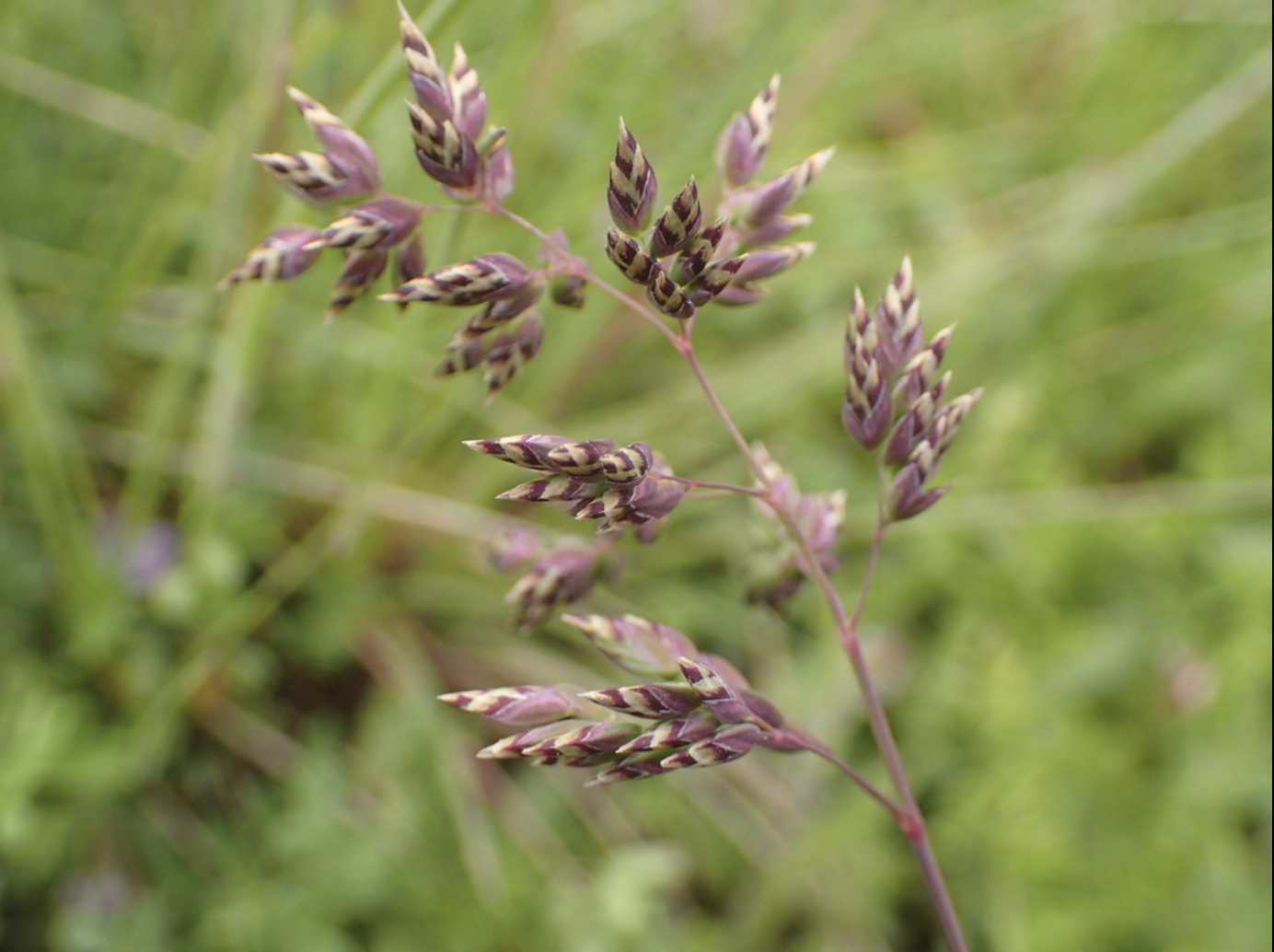
Alpine bluegrass
Poa alpina
Short, densely tufted, Cool season perennial bunchgrass adapted to subalpine and alpine slopes and meadows. Wide variety of soils from clay to gravel. Leaves form a dense mat providing good soil cover. Good palatability for wildlife but does not produce a lot of forage. Useful for revegetating high elevation rangelands
- Growing Region: Intermountain West, Pacific Northwest
- Blooms:
- Life Form: Grass
- Application Type: Habitat Restoration, Land Reclamation
- Height: 0-1 ft
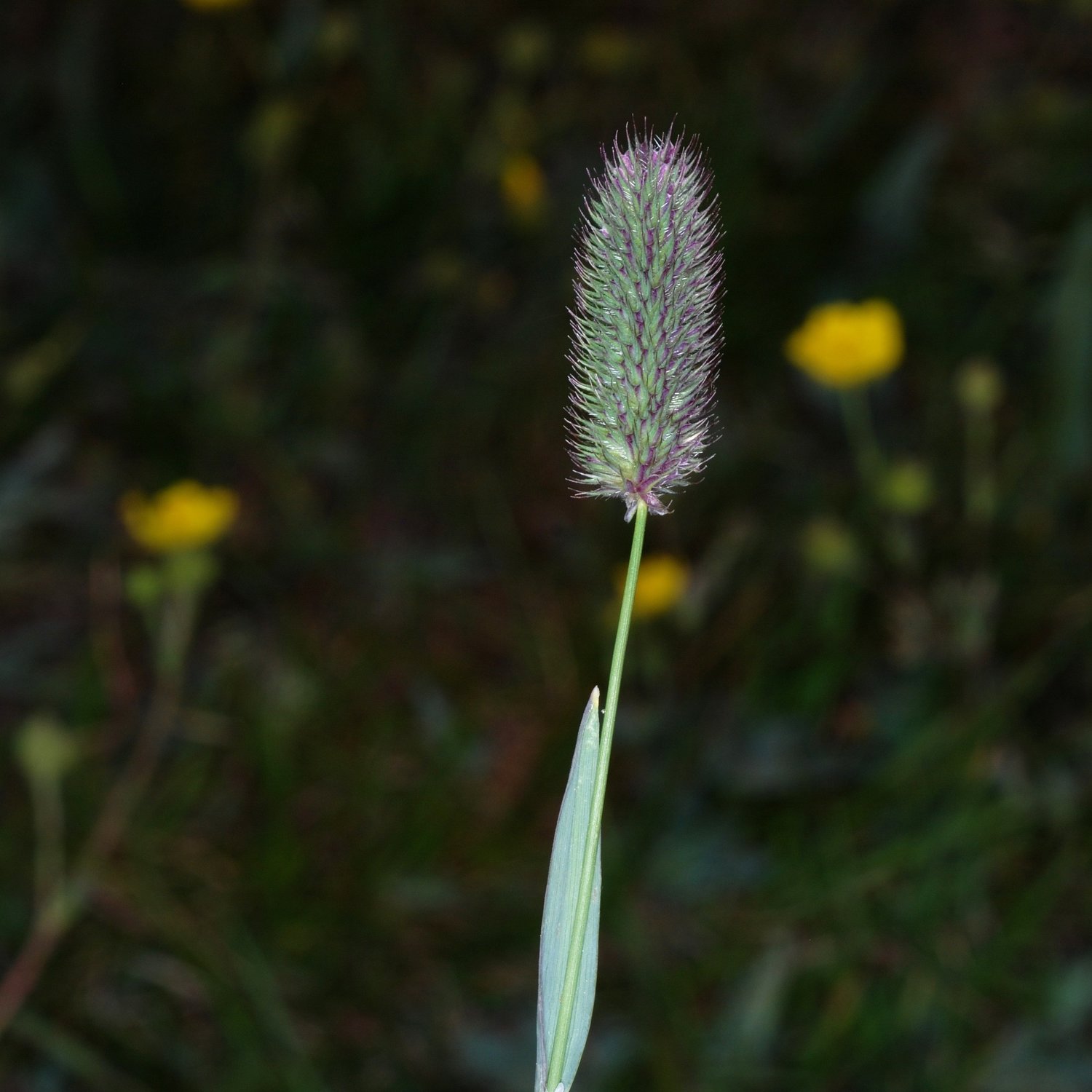
Alpine timothy
Phleum alpinum
Short, Cool season, perennial native bunchgrass sometimes forming a sod. Occurs at high elevations in northern latitudes from 4,000-12,500 ft. Prefers mountain meadows, bogs and streambanks in well-drained to poorly drained soils. Provides good forage that stays green throughout the summer and late season. Used to revegetate roadsides, ski slopes and mines.
- Growing Region: Southeast, Midwest
- Blooms:
- Life Form: Grass
- Application Type: Agricultural Conservation, Erosion Control, Habitat Restoration, Land Reclamation
- Height: 1-2 ft
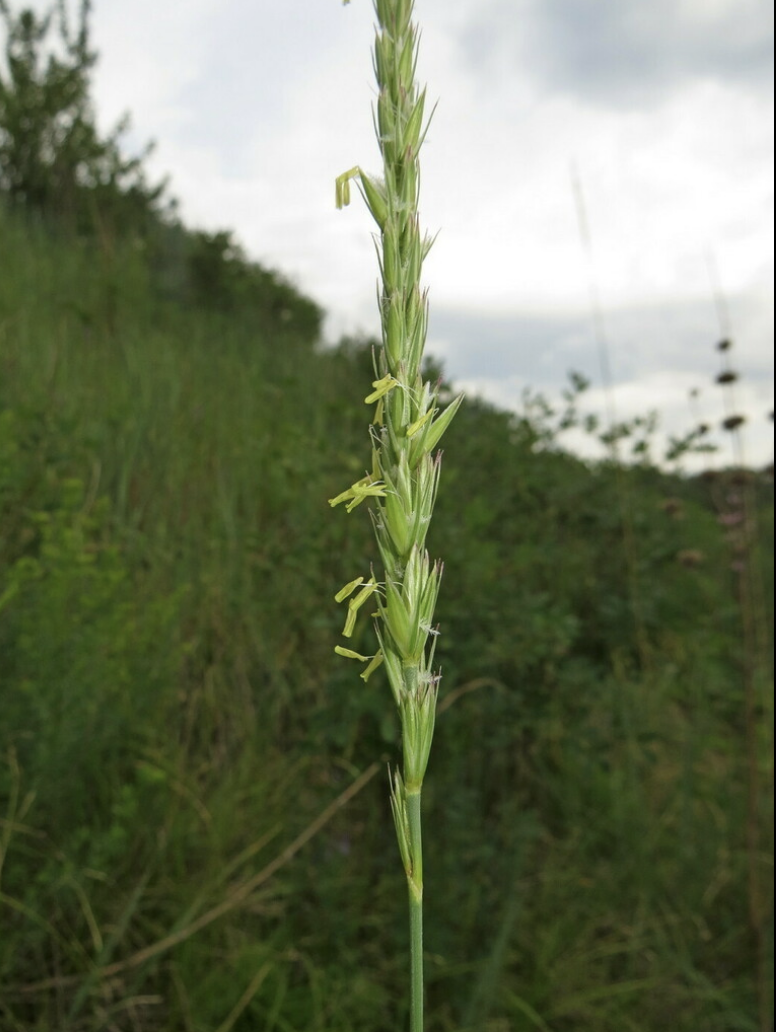
Altai wildrye
Leymus angustus
Formerly Elymus angustus. Robust, Cool season, long-lived, perennial bunchgrass with short creeping rhizomes. Well adapted to loam and clay soils, drought tolerant and extremely salt and alkaline resistant. Excellent winter hardiness. Root system may extend to 14 ft. below the surface, making it useful for soil stabilization. Excellent forage, especially in winter when plants stand above the snow surface available for grazing. Nearly as productive as Tall wheatgrass (Thinopyrum ponticum) on saline soils.
- Growing Region: Pacific Northwest, Intermountain West
- Blooms:
- Life Form: Grass
- Application Type: Agricultural Conservation, Erosion Control, Habitat Restoration, Land Reclamation
- Height: 1-4 ft
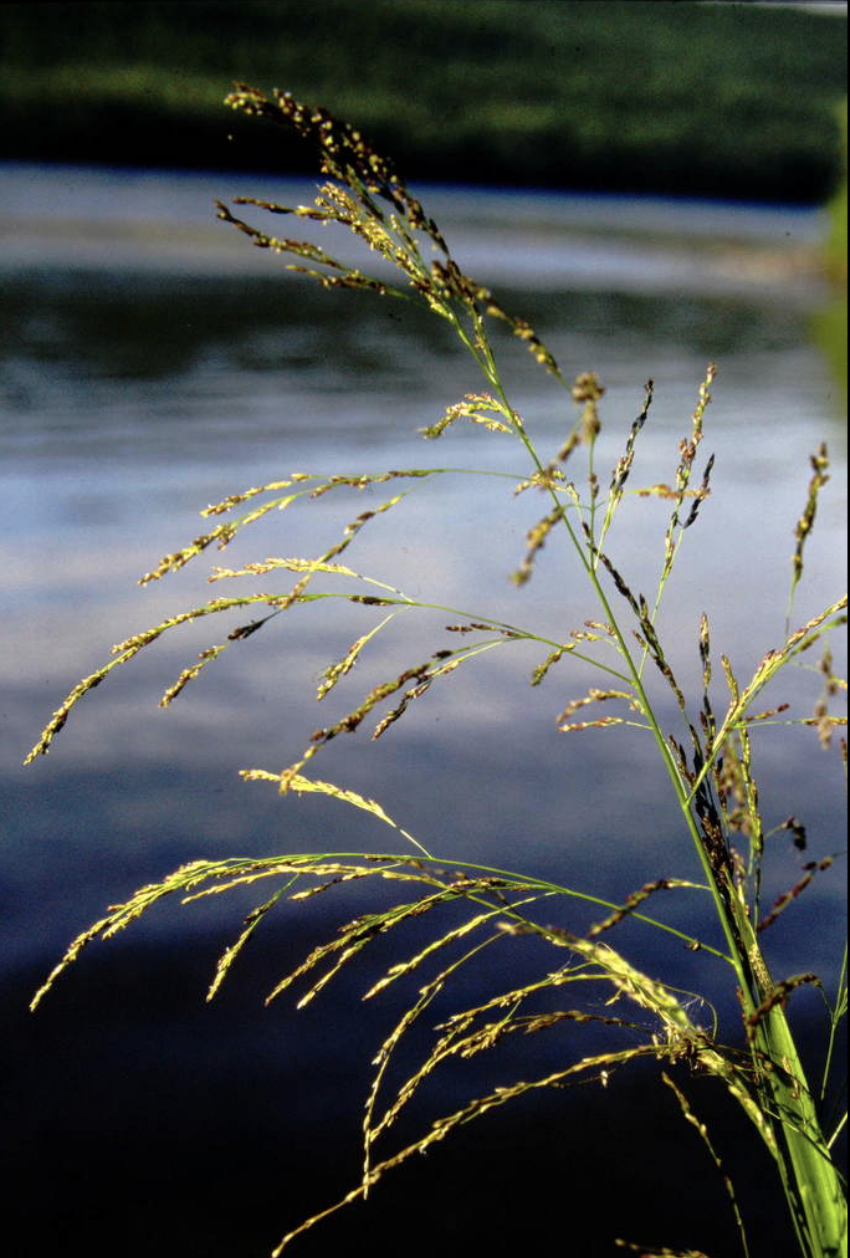
American mannagrass
Glyceria grandis
Cool season, rhizomatous, native perennial that occurs in wetlands, streambanks, marshes and ditches. Requires wet to moist soils; withstands periods of submersion. Grows rapidly. Important wetland food and habitat source for waterfowl, muskrats and deer throughout its range.
- Growing Region: Pacific Northwest, Southeast
- Blooms:
- Life Form: Grass
- Application Type: Habitat Restoration, Land Reclamation
- Height: 1-3 ft
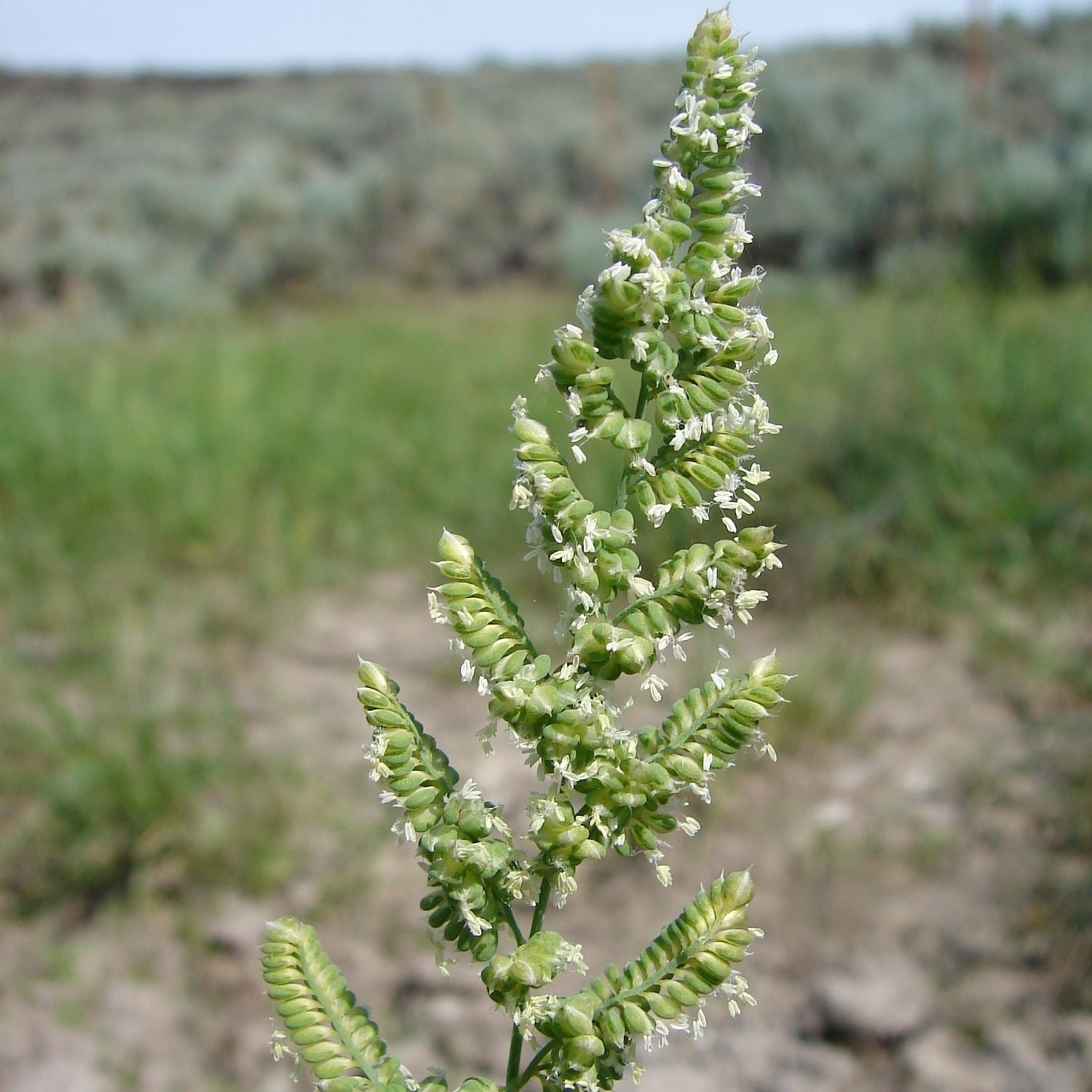
American sloughgrass
Beckmannia syzigachne
Cool season, robust annual or short-lived perennial that may develop short rhizomes. Commonly occurs on wet sites such as ponds, swamps, ditch banks, shallow marshes and sloughs. Prefers clay soils; tolerant of saline soils. Shallow-rooted and able to colonize denuded wetland soils, making it excellent for riparian reclamation. Seeds are eaten by migratory birds. Palatable and frequently used for hay or grazing.
- Growing Region: Pacific Northwest, Intermountain West, Northeast, Midwest
- Blooms:
- Life Form: Grass
- Application Type: Agricultural Conservation, Erosion Control, Habitat Restoration, Land Reclamation
- Height: 1-3 ft
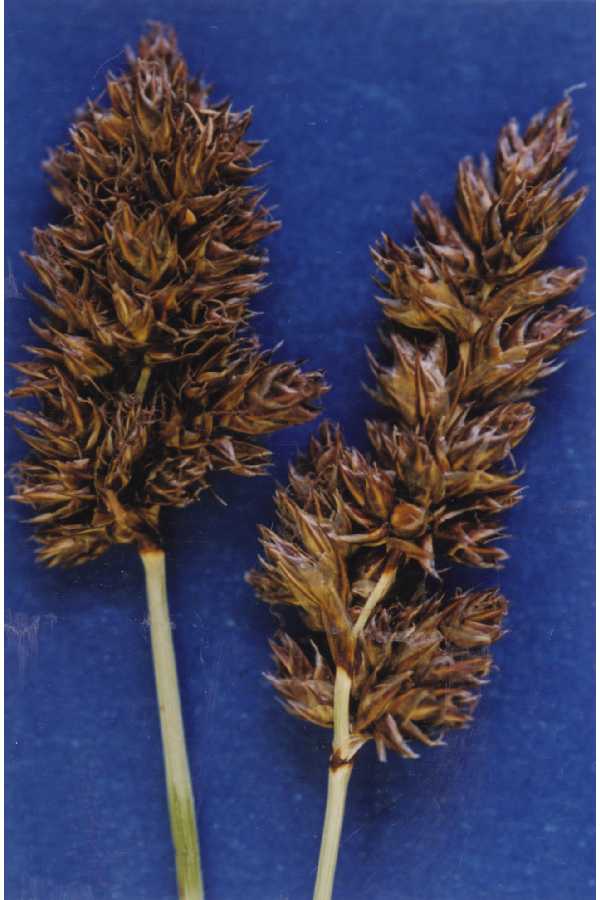
Analogue sedge
Carex simulata
Cool season, rhizomatous, native perennial grasslike common in many western states. Occurs in saturated soils of wet meadows and springs, from foothills to moderate elevations up to 9,000 ft. Often found on gentle slopes below seeps and on flat areas next to streams, sometimes in dense stands. Tolerates partial shade. Well-adapted to soils rich in organic matter but also to fine-textured saturated mineral soils. Useful for wetland and riparian restoration.
- Growing Region: Intermountain West, Pacific Northwest
- Blooms:
- Life Form: Grass
- Application Type: Habitat Restoration, Land Reclamation
- Height: 1-3 ft
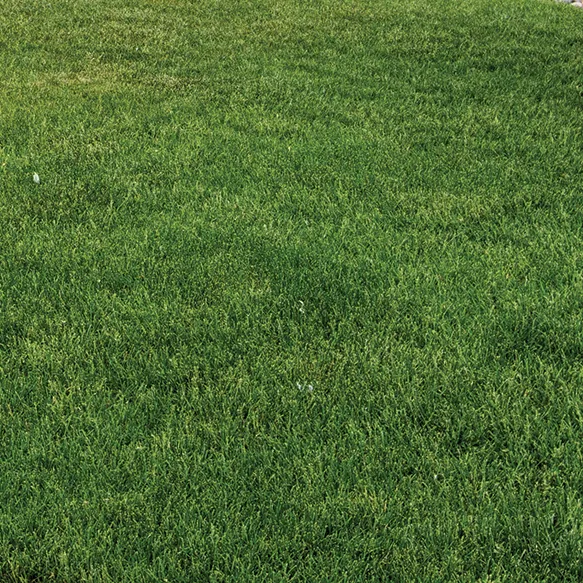
Annual ryegrass
Lolium perenne ssp. multiflorum
Formerly Lolium multiflorum. Cool season, annual bunchgrass adapted to many sites where adequate water is available. Establishes quickly and easily. Highly palatable to livestock and wildlife. Excellent for temporary pasture or for early spring growth in a perennial pasture mix. Use in erosion control blends for quick, temporary cover. Also used for winter over-seeding of dormant Warm season Bermudagrass (Cynodon dactylon) lawns in the south and southwest.
- Growing Region: Intermountain West, Northeast, Pacific Northwest, Midwest, Southeast, California
- Blooms:
- Life Form: Grass
- Application Type: Commercial Beautification, Erosion Control, Land Reclamation, Turf, Forage & Pasture
- Height: 1-3 ft
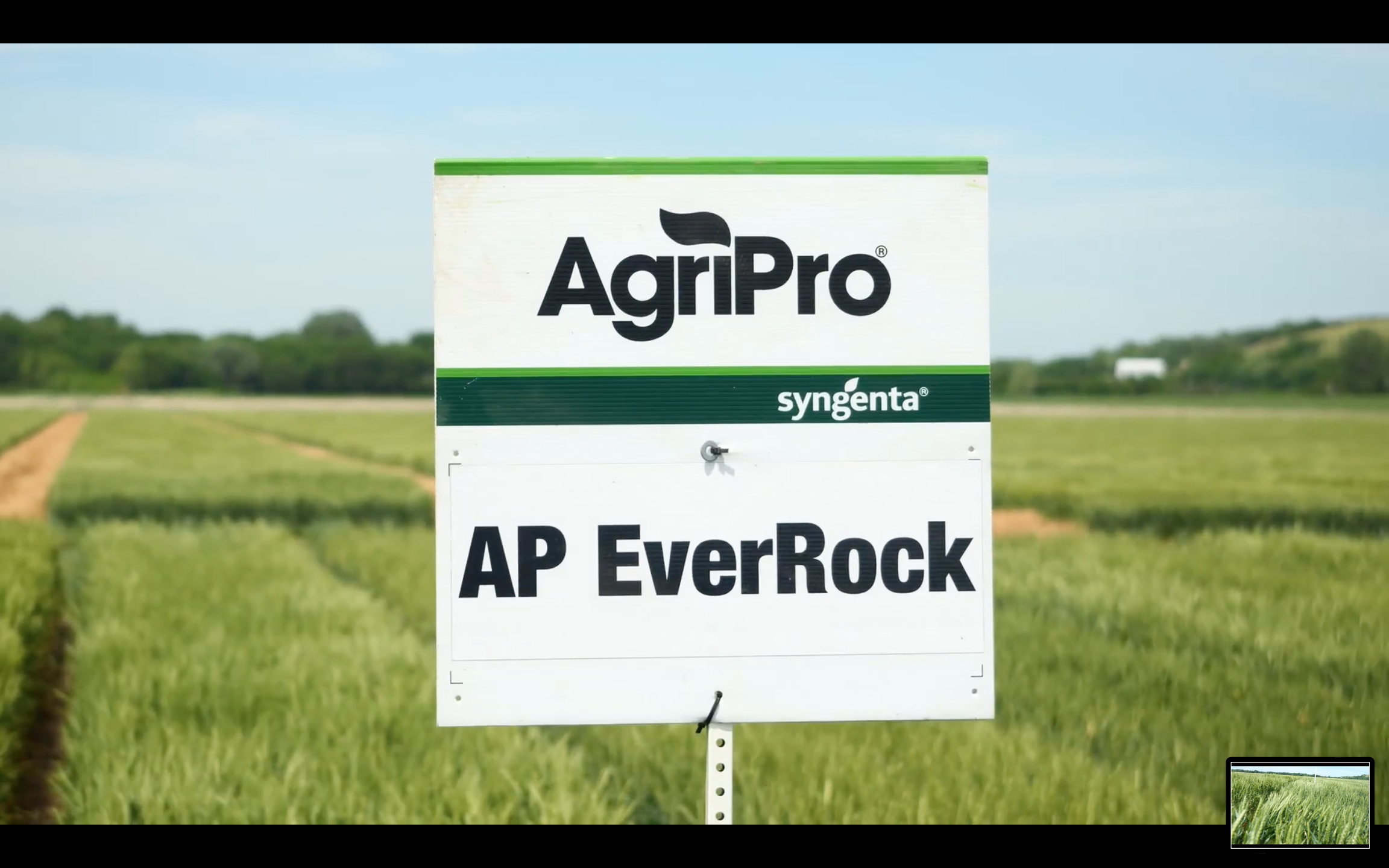
AP EverRock
Triticum aestivum
AgriPro is leading the way in the development and delivery of superior wheat seed genetics in North America. Each year more than 2,000 new experimental lines are generated and tested across 25 research and testing sites in Kansas, Nebraska, Colorado, Wyoming and South Dakota. Only the very best of these experimental lines are advanced as potential AgriPro varieties. AgriPro varieties offer high-yield potential, good test weights and high-quality grain. Wheat producers like the consistency that AgriPro varieties provide under a wide range of conditions.
- Growing Region: Southeast, Midwest
- Blooms:
- Life Form: Grass
- Application Type: Agricultural Conservation, Cover Crop
- Height: 1-3 ft
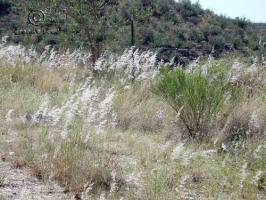
Arizona cottontop
Digitaria californica
Formerly Trichachne californica. Warm season, very drought tolerant, perennial bunchgrass adapted to deep well-drained soils. Rarely found in pure stands. Will repeatedly go to seed throughout the growing season when moisture remains available. Attractive white cotton-like seed heads make it useful as an ornamental. Extremely palatable to livestock and useful for improving rangelands.
- Growing Region: Southwest, Intermountain West
- Blooms:
- Life Form: Grass
- Application Type: Agricultural Conservation, Commercial Beautification, Habitat Restoration, Land Reclamation
- Height: 1-2 ft